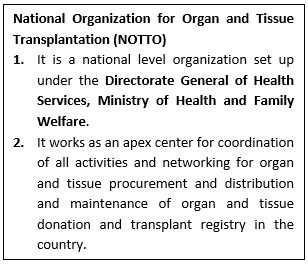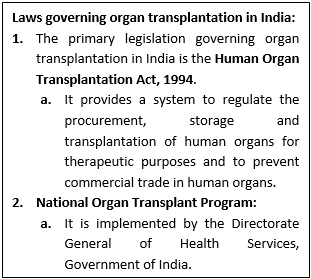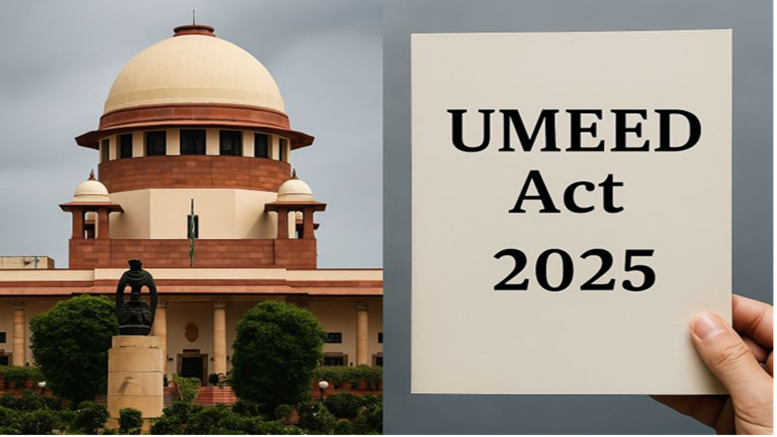- Courses
- GS Full Course 1 Year
- GS Full Course 2 Year
- GS Full Course 3 Year
- GS Full Course Till Selection
- Online Program
- GS Recorded Course
- NCERT (Recorded 500+ Hours)
- Polity Recorded Course
- Geography Recorded Course
- Economy Recorded Course
- AMAC Recorded Course
- Modern India, Post Independence & World History
- Environment Recoded Course
- Governance Recoded Course
- Science & Tech. Recoded Course
- International Relations and Internal Security Recorded Course
- Disaster Management Module Course
- Ethics Recoded Course
- Essay Recoded Course
- Current Affairs Recoded Course
- CSAT
- 5 LAYERED ARJUNA Mentorship
- Public Administration Optional
- ABOUT US
- OUR TOPPERS
- TEST SERIES
- FREE STUDY MATERIAL
- VIDEOS
- CONTACT US
NOTTO and the "Cash-For-Kidney Racket"
NOTTO and the "Cash-For-Kidney Racket"
09-12-2023
Context
Recently, The National Organ and Tissue Transplantation Organization (NOTTO) ordered an inquiry into allegations of "kidney money" against Indraprastha Medical Corporation Ltd.
Organ Transplantation: Scenario in India
- The number of organ transplants has more than tripled; from 4,990 in 2013 to 15,561 in 2022.
- The most common organ transplant is for kidneys, followed by liver, heart, lung, pancreas and small intestine transplants.
- Only 1,743 (14%) organs were from deceased donors (who donate their organs or tissue after they have died), while the majority of harvested organs were from living donors.
What are the challenges of organ donation?
- Limited public awareness of organ donation.
- Reluctance of the family to give consent for organ donation, even if the deceased individual expressed willingness to donate.
- Criminal activities exploiting the demand for organs and undermining legitimate donation processes.
- Matching of suitable donors and recipients.
- Debates about the ethical implications of offering financial incentives or compensation to organ donors.
- Balancing the need to increase donation rates with ensuring ethics.
The way forward
- Work with artists, influencers and celebrities to create compelling campaigns highlighting the importance of organ donation.
- Organize workshops for healthcare professionals using interactive simulations and case studies for donor identification and family counseling.
- Collaborate with educational institutions to raise awareness among students about organ donation through workshops and lectures.
- Host community-driven events that showcase the success stories of organ recipients and donors.
- Engage religious leaders to debunk myths and misconceptions about organ donation and emphasize its compassionate aspect.
- Establish a program to honor donors and their families and recognize their selfless contribution through plaques and certificates.
Must Check: Best IAS Coaching In Delhi

![img-PSYCHOLOGICAL WARFARE [PSYWAR]](https://i.filecdn.in/755esias/PSYCHOLOGICALWARFAREPSYWAR-1747206772505.jpg)

